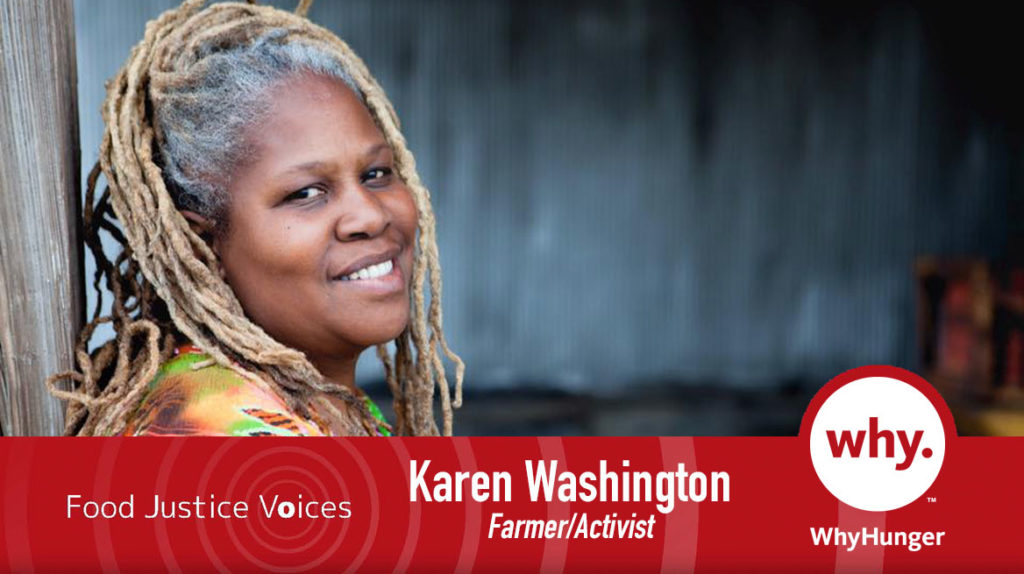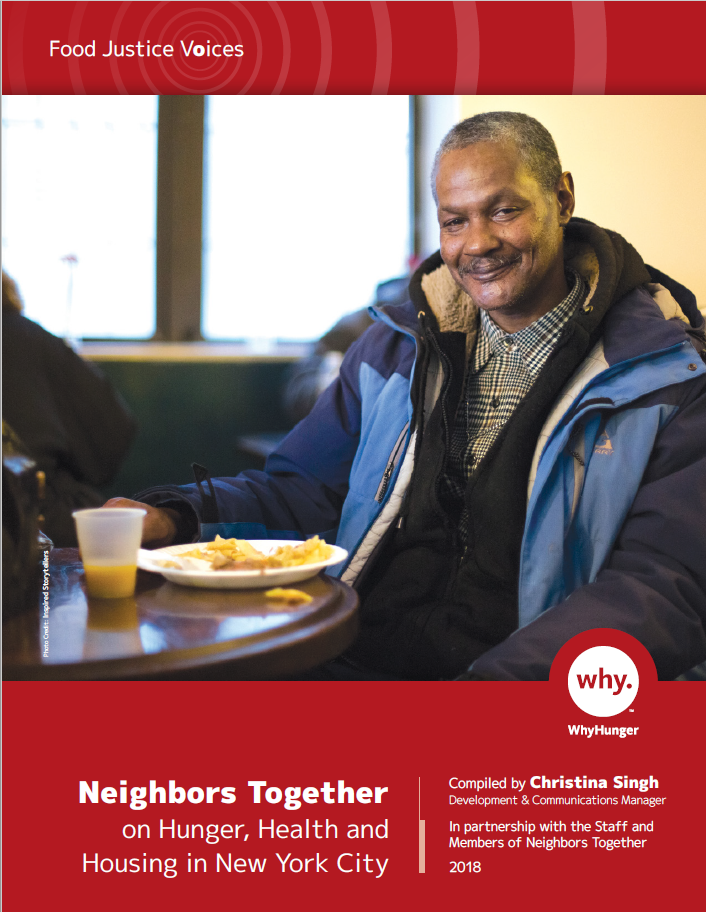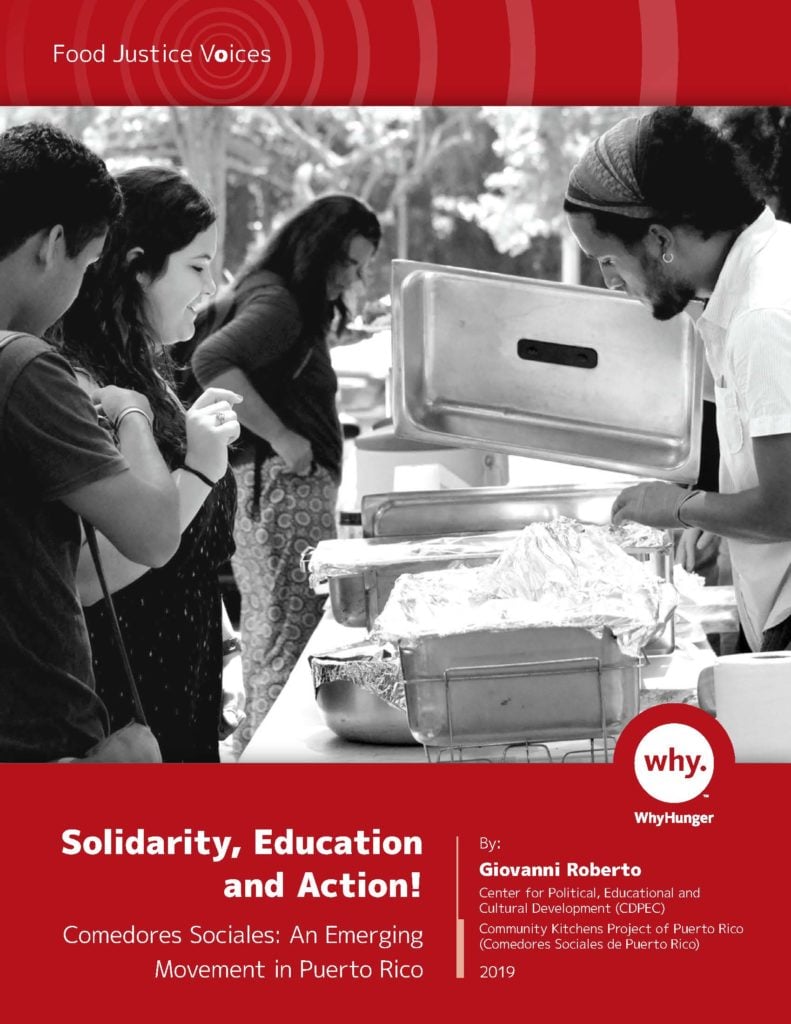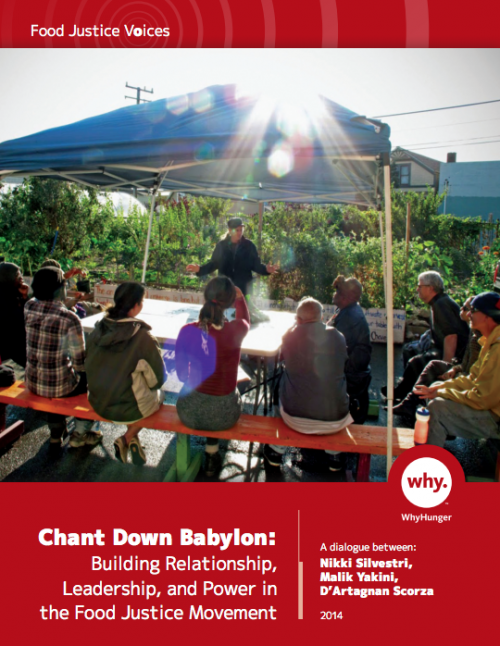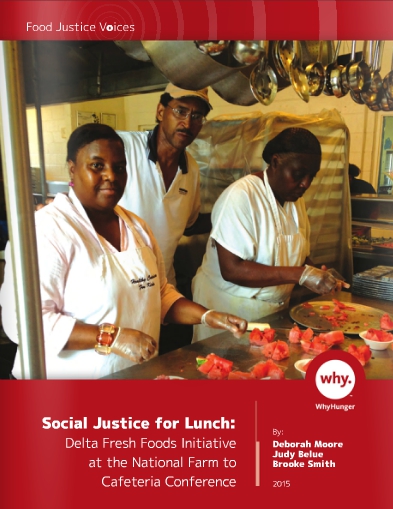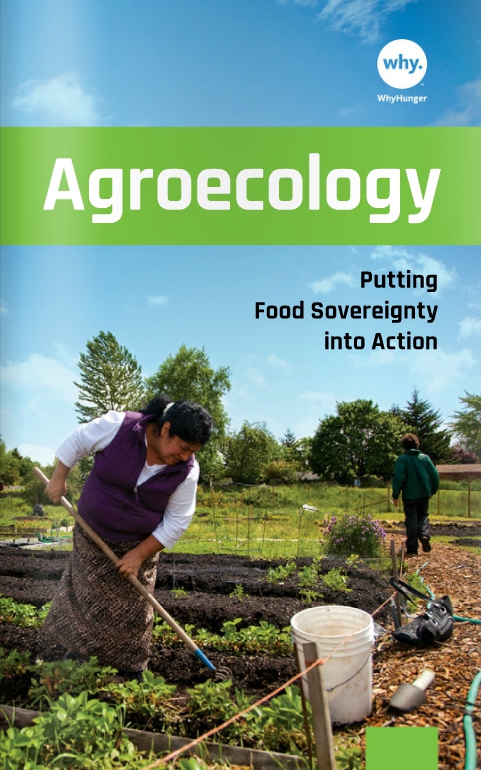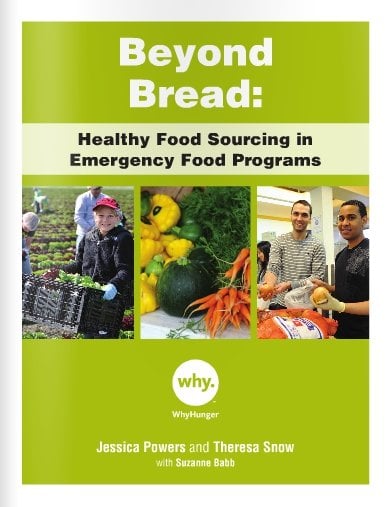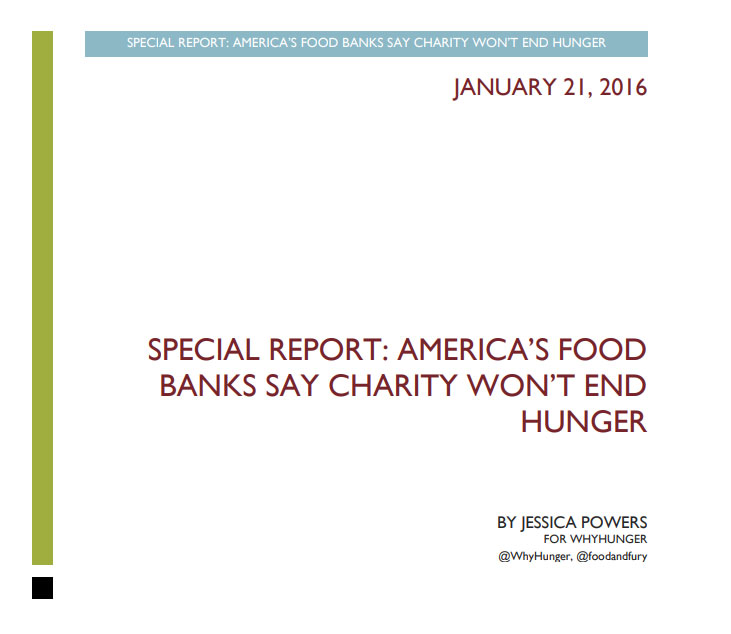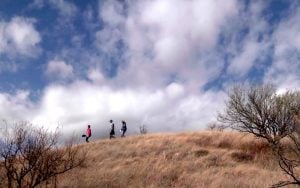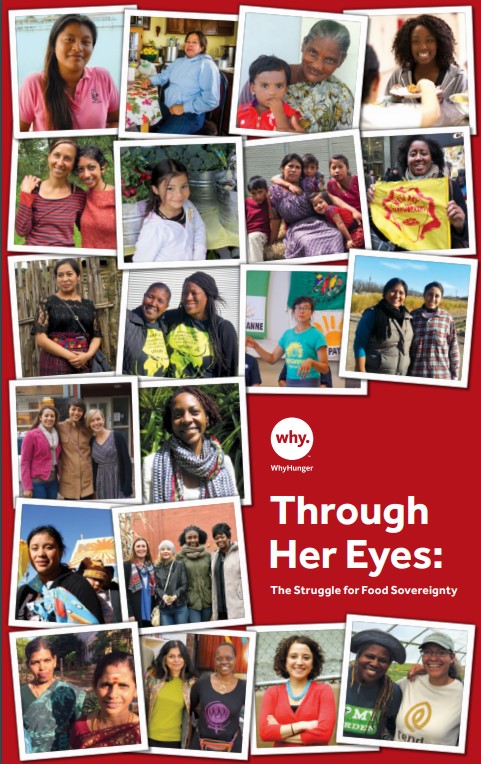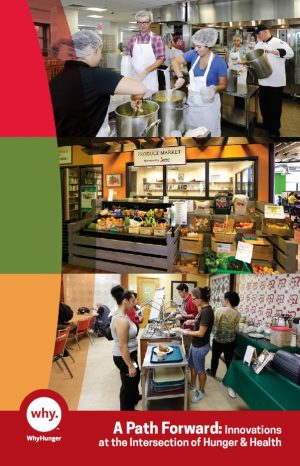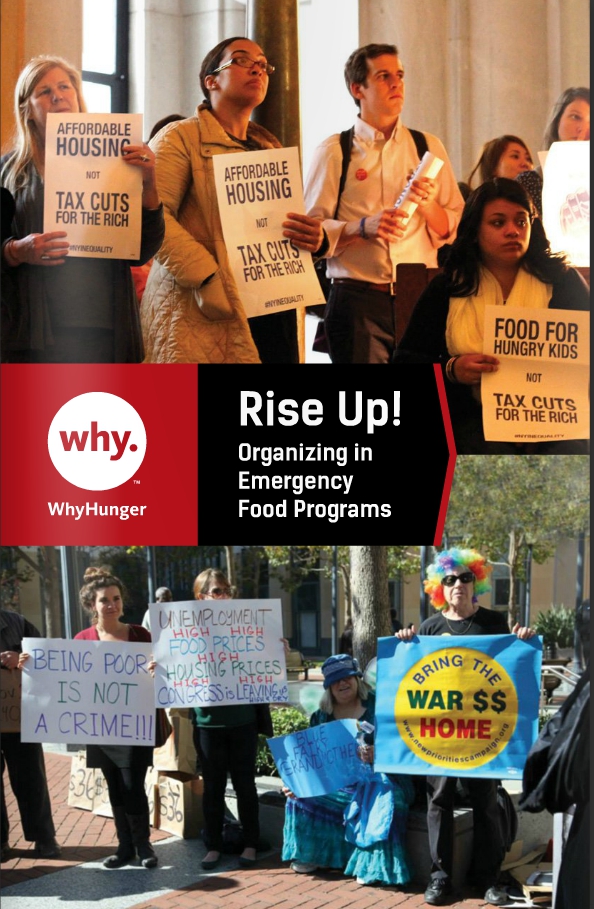All Publications
“Food justice is not a passive movement. If you are actively working on food justice, you have to be actively working on dismantling the injustices that you see. The injustices that fall along race, gender, land acquisition, land grabbing, job opportunities, wealth, etc.” Karen Washington, farmer, activist (BUGs, Rise and Root Farm) and long time friend of WhyHunger, explains in
25-02-2021
The People’s Agroecology Process emerged in 2015 as a grassroots-led initiative to scale out agroecology in the United States, Canada and Puerto Rico. It was inspired by the work of allied organizations involved in the transnational peasant and small-scale farmer movement, La Via Campesina—the world’s largest rural social movement with over 200 million members in more than 80 countries. In
10-06-2020
In the U.S. and around the globe, women are growing food for their families, young people are using agroecology to harvest produce for market, and Indigenous communities are protecting ancestral land and seeds to sustain themselves. These are some of the true solutions to hunger that nourish people and planet and put affected communities in charge of their own health and well being. In
29-01-2020
Canadians have a right to food – sort of. In accordance with the International Covenant on Economic, Social and Cultural Rights, which the Canadian government ratified in 1976, everyone living in this country has a right to food. That makes the government the duty bearer in ensuring that people can feed themselves, their families and their communities. This does not
16-01-2020
View our online interactive web page Thirty-five years ago, the community of central Brooklyn saw a steep decline in quality of life for its residents. Lack of jobs, a cut to social resources, and a swell of drugs hit the area -and fast. Residents began to see their neighborhood changing rapidly, and those who wanted to see their community thrive
13-03-2018
Before Hurricanes Irma and Maria struck in 2017, a large percentage of Puerto Ricans faced food insecurity on a daily basis. In fact, Puerto Ricans were 4 times more likely to be hungry than the average American. In a region with rich soil, a temperate climate and a rich agricultural history, these figures become even starker when set against the
08-07-2019
In new Food Justice Voices issue Pathology of Displacement: The Intersection of Food Justice and Culture, storyteller, healing practitioner and food justice organizer Shane Bernardo tells his story about how displacement has affected his ancestors and family within the Philippine diaspora, and how he is working to reclaim ancestral subsistence practices that connect him to land, food and his roots. In this
07-06-2017
In Food Justice Voices "A Farmer Like Me: Exploring Hunger, Race and Farming in America," farm and food justice activist Lorrie Clevenger of Rise & Root Farm, shares her childhood foundation, experience as a Black farmer and her vision on how we can make our agricultural system better. Download the full PDF here.
13-03-2017
Michael Brown, an unarmed Black teenager, was shot and killed on Aug. 9, 2014 by Darren Wilson, a white police officer, in Ferguson, Mo., a suburb of St. Louis. What does what happened in Ferguson and the subsequent response that followed have to do with the food justice movement? Risk Ratios reveals that Black people were killed at 10
16-10-2015
Food Justice Coordinator Kathia Ramirez shares her perspective on the journey of immigrant farmworkers pursuing the American dream and shares why food justice is important on every level. “In the U.S.’ quest for cheap goods and labor, we have intentionally created a need for undocumented, low-wage workers. As we pump cheap food into the Latin American and domestic marketplaces, it
22-03-2017
Rural family farmers and migrant farmworkers are at the front lines of the climate, fossil fuel, fracking, water and land struggles across the U.S. They have been increasingly uniting with urban and international social movements to build resistance and change the system that has consistently failed them. Download: Cultivating International Solidarity Through Popular Resistance.pdf
09-03-2016
Agroecology | Poverty | Migration & Landlessness At the U.S.-Mexico border, surveillance cameras and military check-points are part of everyday life for those that reside in the surrounding communities. In the borderlands, many workers and their families are exploited and marginalized; ancestral farmland is taken away and replaced with destructive industrial agriculture, and fresh, healthy, local food is not readily
23-08-2015
Leaders from three dynamic grassroots organizations, convened in Detroit to initiate a conversation and develop action around collective leadership by people of color in the food justice movement. In the latest addition to WhyHunger’s Food Justice Voices series, Malik Yakini, Executive Director of the Detroit Black Community Food Security Network, D’Artagnan Scorza, Ph.D., Executive Director of the Social Justice Learning
21-01-2015
A firsthand account of community-led groups and individuals in the Sonoran desert borderlands who are building dignity through struggle from the ground up, this publication asks the question, "How can people in the borderlands be healthy and empowered when their communities are under attack?" This question is at the core of cesar lopez’s “Dignity, Hope, Wellness and Action: Against All
12-08-2015
Social Justice for Lunch explores the work of the Delta Fresh Foods Initiative (DFFI) to transform the food system in the Mississippi Delta region into one that is more equitable and just for all. Continuing WhyHunger’s Food Justice Voices series, Social Justice for Lunch gives insight into an equity-based approach to address the lack of access to nutritious food and
12-08-2015
Explore a compilation of drawings, poems, photos and short stories that elevates the voices of youth food justice activists, as well as intergenerational narratives around youth power within the context of the United States. The newest addition to WhyHunger's Food Justice Voices, The Youth Food Justice Zine offers a platform for young food justice activists to share their stories, publish
12-08-2015
La organización WhyHunger está orgullosa de lanzar su primera publicación de agroecología, "Poner la Soberanía Alimentaria en Práctica."Agroecología es un método agrícola basado en los conocimientos tradicionales de los que cultivan la tierra y una forma de vida. Creemos que su práctica es fundamental para combatir el hambre mundial y para aumentar el acceso de las comunidades a los recursos
08-09-2015
Just in time for International Women’s Day, WhyHunger released its newest publication "Through Her Eyes: The Struggle for Food Sovereignty." We know that women are responsible for 60-80% of food production in the Global South and represent 50% of food chain workers in the U.S. Yet, women and girls are disproportionally affected by hunger. This publication honors and amplifies the
05-12-2017
The 61st session of the Commission on the Status of Women (CSW61), took place at the United Nations Headquarters in New York from 13 – 24 March, 2017. The Commission is one of the largest annual gathering of global leaders, NGOs, private sector actors, United Nations partners and activists from around the world focusing on the status of rights and
28-03-2017
In a new report, Janet Poppendieck, activist, author, professor emerita at Hunter College and WhyHunger Board Member, reflects on her decades of research and advocacy to promote the School Breakfast Program in light of its 50th anniversary. She lifts up this critical program, which provided 2.3 billion nutritious meals to America’s children last year, and its steady growth as possibly
10-10-2016
This guide gathers resources and information about innovative nutrition education programming by organizations around the country. These models can serve as examples and inspiration to create new programming or as sources for collaboration and ideas. WhyHunger is pleased to announce a comprehensive, 88 page capacity building guide, Cooking Up Community: Nutrition Education in Emergency Food Programs. Download the executive summary
12-08-2015
This report reflects on WhyHunger's achievements and impacts as we continue to build a broad-based social movement with our grassroots partners to ensure that everyone has a right to nutritious food. In it you’ll find updates on annual campaigns such as Hungerthon and Imagine There’s No Hunger, the results, stories and successes of our programmatic work, and a special note
16-10-2015

